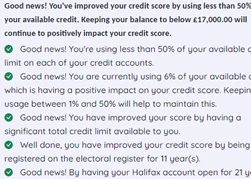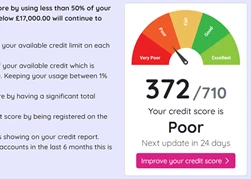What is an Anti Money Laundering Check?

26th Nov 2024
Money laundering is a method used by criminals to disguise the origin of illegally obtained funds, making it appear as if the money was earned through legitimate means. Essentially, it's a process of "cleaning" dirty money. Criminals need to hide how they got their money, and laundering makes it look like their funds came from a legal source. In the UK, money laundering is a significant issue, and banks are spending over £5 billion a year to try to stop it. Efforts to stop money laundering affect all of us, which is why you have to go through credit checks and other financial checks when opening a new bank account or paying for a large purchase such as a new car.
How Does Money Laundering Work?
Money laundering typically involves three stages, though the process can be more complex to avoid detection by authorities.
- Placement: This is the initial stage where illegal money enters the financial system. Criminals deposit large amounts of cash into banks or other companies. This stage is risky for the criminals because it involves handling substantial sums of physical cash, often acquired from activities like drug dealing. This is why banks will ask for identity checks when you are opening bank accounts or taking out loans.
- Layering: In this stage, the money is transferred between many different accounts, often crossing international borders, to make it difficult to trace. Criminals might also invest in companies or buy and sell property in the UK or overseas to try to hide the money.
- Integration: The final stage of the process sees the laundered money reintroduced into the economy as legitimate funds. The laundered money may be used to purchase high-value items like art or property.
Why Do Banks Perform Anti-Money Laundering (AML) Checks?
Banks are legally required to carry out anti-money laundering checks to make sure that the funds they accept are from legitimate sources. While these checks can happen at any time, they are most common with significant monetary transfers, such as taking out a mortgage or opening a new account with a substantial amount of cash. It's important to note that being asked to go through anti money laundering checks does not mean the bank thinks your money might be dodgy. It is a standard procedure that everyone may encounter and usually show up as a soft search on your credit report.
What Do Anti-Money Laundering (AML) Checks Look Like?
AML checks are designed to verify that investors in a business are genuine and not using criminal money. These checks typically involve confirming an individual's identity and address. Banks or other financial businesses will ask to see key identity documents such as a current driving licence or a passport. You will also be asked to show something to prove your address, such as a council tax or electricity bill, a bank statement, or mortgage statement. If you are already a customer of a bank and wish to open a new account, the checks may be less than if you are completely new to them.
Don't risk missing
something important
Access a comprehensive credit report
that includes detailed data from TransUnion
View your credit score for only £1.95.
You can view it for 1 month, after which it will be £14.95 per month unless cancelled.
See How You Score

See How You Score
An Independent View Of Your Credit Score
Lenders typically use their own systems to calculate your Credit Score based on the information in your Credit Report, often checking with one or more Credit Reference Agencies. Your Credit Check Online Credit Score is derived from all the Credit Report information we gather from TransUnion, helping you understand how you might be assessed when applying for credit.

Understand What is Affecting Your Credit Score
Quickly see how the details in your Credit Report influence your Credit Check Online Credit Score, both positively and negatively. This clear overview helps you identify areas for improvement and better understand the factors that lenders consider when assessing your creditworthiness.
View your credit score for only £1.95.
You can view it for 1 month, after which it will be £14.95 per month unless cancelled.